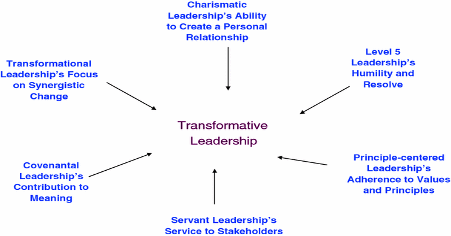Leadership will be key to business survival as we exit lockdown 3.0
Article written by Julian Tee - Associate Partner
Business come in all shapes and sizes and arguably, none more so than in the hospitality sector. Think mobile coffee shop housed in the back of a tuctuc to the grandest of hotels or largest conference centre, and everything in between.
All have been hit by the Covid-19 pandemic in some way, shape or form and whilst some will not survive, others will, with varying degrees of success and with varying periods of time taken to get back on their feet. Some have thrived through diversification and others have battened down the hatches.
None of the businesses hit by the pandemic, caused the pandemic; few insured against such explicit a risk and it is reasonable to assume that none of the businesses set out to fail. Many will have significant financial concerns which cannot be overlooked or underplayed. Most have received financial support.
Of course, motivations for business owners and leaders will vary but it is likely that one common goal sits with all – to achieve.
`Achievement` may sound like a simple word however, it has a deep meaning referring to purpose, delivering outcomes, being proud of one’s work, stretching oneself and others, and being willing to adapt and change. What is more, achievement requires effort, skill, courage, ongoing collaborative engagement in goals and actions and is underpinned by values.
Achievement may take many forms and will be driven by the motivations of the founders. Motivation is the key driver for performance, in particular during a crisis. Research shows that individuals are most energised and committed when they are internally motivated by their own values, sense of enjoyment, and growth. Think Maslow’s hierarchy of needs, satisfaction of basic needs and aspirations to achieve self-esteem.
The latest research by McKinsey&Company found a strong correlation between employees’ stated needs and the underlying drivers of their engagement, well-being, and work effectiveness during Covid-19.
In an industry that is still heavily reliant on human beings to deliver customer experiences (especially in front of house areas) employees play a key role and will continue to play a key role in driving revenues, reducing costs and generating profit. Employee engagement must therefore be a focus for hospitality business leaders in the fight for survival as we come out of Lockdown 3.0 in the UK.
Within the UK hospitality space and more specifically within the hotel sector, there are international hotel companies, brands, management companies, owners, franchisees, operators along with national and regional businesses. There are single site boutique hotels, owner operated lifestyle businesses and low-cost B&B’s. All have a place; all have a purpose and all have objectives.
All plan to survive and thrive and to do this, all need Leadership of some sort.
This global pandemic has taught us many things and shown the fragility of many an organisation. Equally so, it has shown how agility and resilience are essential skills to survive and thrive.
Government support in the UK has thrown a lifeline to many businesses regardless of size or complexity. However, the complexity, uncertainty, and ambiguity of the circumstances caused by the crisis are still unfolding, and the reimagination of business ranging from operations to employee engagement is essential.
With the vaccine programme well underway and hope for the immediate future, business Leaders must once again step up and embrace the opportunity to show leadership and re-ignite their businesses – regardless of scale or complexity.
What is the role of leadership in a time of crisis?
· In times of crisis, Leaders step forward – they address the issues and find solutions;
· Leaders obtain information to enable them to make informed decisions;
· Leaders align people and motivate, energise and inspire;
· Leaders communicate and make decisions based on pre-determined criteria;
· Leaders will make mistakes and must react accordingly;
· Leaders show leadership.
Leaders need to balance the need for business survival (and in some cases the survival of their own livelihoods) with the needs of the people who have supported their businesses (and therefore their livelihoods) in the past.
Leaders need to recognise the challenges that lie ahead for their workforce and recognise various attitudes (and subsequent drivers) to work:
· Those who are energised and ready to go;
· Those who are hesitant;
· Those who are reluctant to travel and expose themselves to risk;
· Those who have underlying conditions that are now impacting their ability to work;
· Those who have fallen out of love with their former roles.
If they don’t already, Leaders need to engage with their workforce:
· To show empathy and commitment to re-train, re-energise and re-invigorate;
· To communicate regarding business plans;
· To re-evaluate job roles for the immediate future and longer-term prosperity of the business and individuals;
· To evidence their commitment to the wellbeing of the workforce.
Leaders need to show self-awareness and openly evidence their empathy and support for their workforce.
What is the road map for such leadership? Transformative Leadership can provide the framework to shine the light out of the tunnel:
`Transformational Leadership is an ethical based leadership model that integrates a commitment to values and outcomes by optimizing the long-term interests of stakeholders and society and honoring the moral duties owed by organizations to their stakeholders. ‘Caldwell et al. (2020) (Figure 1)
The transformative Leadership model developed by Caldwell et al. (2012) incorporates a commitment to ethical duties, values, and outcomes that are key elements of six leadership perspectives. When we take into consideration high complexity, volatility, uncertainty, and ambiguity of working and social environments due to Covid-19, the transformative leadership will be one of the most effective leadership styles in terms of its proactive, dynamic problem solving, human and future-oriented nature.
As also highlighted by Forbes, one of the best leadership styles for managing an external crisis is transformational. Transformational leaders see the bigger picture to better understand the extent of the crisis and its consequences before executing the response. They are responsive rather than reactive and they motivate others to harness their know-how to create logical, dynamic and adaptive plans accordingly with alternative future scenarios.
Most importantly, leaders need to develop and maintain trust in dynamic circumstances such as a pandemic, changing over time from pre-existing trust, to trust based on actions, to trust in the strength of the authentic relationship.
Transformational leaders have shown to be the most trusted leaders by employees.
Diagram 1 Transformative leadership by
Caldwell et al. (2020)
Transformational Leaders exhibit certain traits which can be defined as:
1. Being Visionary and engaging others for shared vision.
They know how to talk about that vision in a way that inspires others to change their thinking and behaviour, to generate better results or to adapt to crisis.
2. Being Communicative with an understanding of how immediate threats can impact growth.
They communicate solutions explicitly and are able to frame their decisions in the context of the team's shared vision of success.
3. They exhibit Curiosity.
Seeking out innovative solutions to long understood problems.
4. Adopting a Team First Attitude.
They leverage emotional intelligence to understand interpersonal dynamics to drive individual and collective performance.
5. Simplicity of message.
Through speaking clearly and communicating concisely to articulate their vision without confusion.
6. They are Charismatic.
Listening, being present, giving praise when things go right, taking responsibility when things go wrong, and providing constructive criticism to team members.
7. Adopting a Tolerance for Risk.
Understanding that mistakes can and will be made in order to move forward and develop ideas, people and processes.
Additionally they operate with:
8. Personal Integrity with Authenticity.
Keeping values close to their heart and heads, remaining true to their goal and recognising the value others bring to deliver the vision.
9. Encouragement and the Ability to Stimulate Intellect.
Leadership will need to drive the process of recovery and inspire management to implement agreed plans to deliver results.
Management in turn must adopt a dynamic approach to business planning built on an understanding of their market segments, demand drivers and opportunities to generate profits, however marginal in the early days.
The ability to pivot and implement changes to the plan to react to local, national and international events will be key to business survival.
There will be a variety of stakeholders to satisfy and open dialogue will be required to address commercial situations. Hopefully discussions will have commenced, sharing the position and seeking constructive solutions.
Of course, some businesses will not survive and new owners will be found. Opportunity presents itself for these Owners to show leadership from the outset.
In all instances, leadership must take the lead. Leadership must openly engage with management and work together to deliver solutions, engage with employees and move forward through this forthcoming re-opening period, re-building businesses and seeking out new opportunities.
Authors:
Julian Tee and Ayse Basak Cinar
Julian Tee is Founder of Compass Hotels Management Limited, a consultancy firm providing support, guidance, insight and consultancy service to independent hoteliers, leisure and hospitality organisations in the UK.
Julian is an associate partner of The Hospitality Partnership.
Contact details:
LinkedIn: linkedin.com/in/juliantee-fih
Website: www.compasshotelsmanagement.co.uk
Acknowledgements:
My thanks to Ayse Basak Cinar for his inspiration and co-authorship of this paper.
Ayse Basak Cinar is a European award winning passionate leadership development, health coach and speaker.
Ayse is a consultant coach at the University of Dundee and member of Know You More an Edinburgh based social technology company, delivering high-quality coaching to every level of an organisation.
Acknowledgements:
My thanks to my family and colleagues, Stephane Bilodeau and Julian Tee, for their support on my leadership journey. Special thanks to Mark Brennan for inspiration.
LinkedIn: linkedin.com/in/a-basak-cinar-european-award-winning-coach
Website: aysebasakcinar.com
The Hospitality Partnership: is THE ‘Go To’ resource talent bank of experienced hospitality professionals in the UK, providing a flexible, cost effective and wide range of professional services to independent hotel and hospitality businesses to include consultancy, sales development, training, marketing, revenue management, financial control, digital media and marketing, business coaching, financial control, procurement and many, many more.
LinkedIn: linkedin.com/company/hospitality-partnership
Website: www.hospitality-partnership.com
For more details:
STRATEGIC CONSULTANCY & OPERATIONS (hospitality-partnership.com)
Jan@Hospitality-partnership.com
Julian.Tee@compasshotelsmanagement.co.uk



